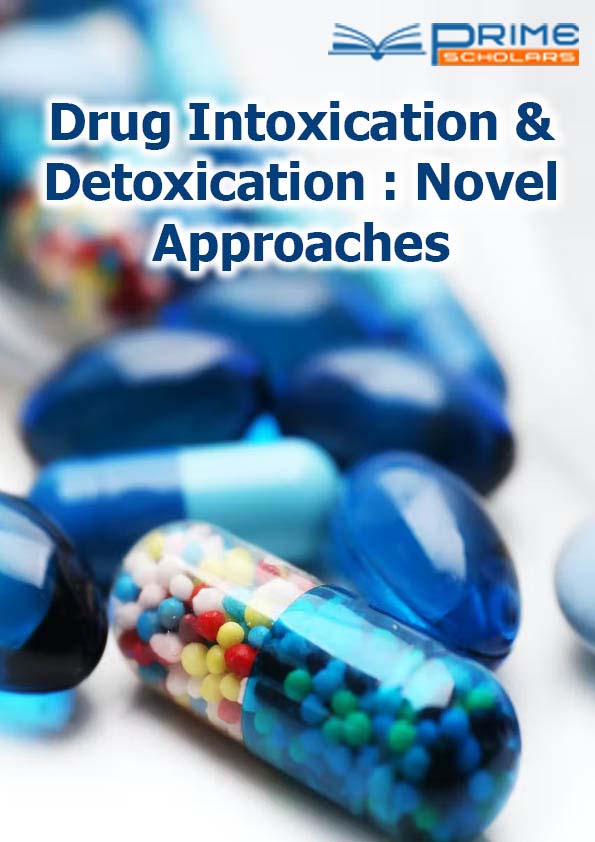Commentary - (2022) Volume 3, Issue 5
Crucial Role and Significance of the Drug: Hydrochloroquine
Bumhee Park*
Department of Medicine, Ajou University, Korea
*Correspondence:
Bumhee Park,
Department of Medicine, Ajou University,
Korea,
Email:
Received: 30-Nov-2022, Manuscript No. DIDNA-22-15311;
Editor assigned: 02-Dec-2022, Pre QC No. DIDNA-22-15311 (PQ);
Reviewed: 16-Dec-2022, QC No. DIDNA-22-15311;
Revised: 21-Dec-2022, Manuscript No. DIDNA-22-15311 (R);
Published:
28-Dec-2022, DOI: 10.36648/DIDNA 3.5.24
INTRODUCTION
The coronavirus pandemic has resulted in a total of over 14
million cases as of and no drugs focused on this infection have
ever been detected. On the other hand, hydroxychloroquine,
a common antimalarial drug, has been used anonymously to
treat coronavirus. In any event, given that previous studies
have shown that hydroxychloroquine use increases the risk of
unexpected cardiovascular death from QT prolongation, there
are some concerns, particularly with respect to the cardio toxic
symptoms of hydroxychloroquine. In addition, QT prolongation
due to drug interactions may be more likely when hydroxychloroquine
is controlled with other drugs. Some studies have
found that hydroxychloroquine is more successful in treating
coronavirus when it is co-regulated with azithromycin other
studies have shown that a mixture of hydroxychloroquine and
azithromycin has no clinical benefit.
Description
The U.S. food and medication organization announced revoked
crisis marketing approval for hydroxychloroquine. Despite this,
some countries continue to use hydroxychloroquine to treat
coronavirus. Patients with comorbidities are at the mercy of
coronavirus transmission and death. Thus, many patients with
coronavirus face a situation in which different drugs are regulated
with hydroxychloroquine at the same time. The bet has
not yet been fully evaluated. The lack of fair evidence on the
risk of QT prolongation caused by DDI prompts two physicians
and administrators to make appropriate coronavirus treatment
decisions. From a factual information point of view, many Electrocardiogram
(ECG) results and drug dissolution recordings
are required to reflexively decompose the role of DDI-induced
QT prolongation. Pharmaceutical information is typically disThe U.S. food and medication organization announced revoked
crisis marketing approval for hydroxychloroquine. Despite this,
some countries continue to use hydroxychloroquine to treat
coronavirus. Patients with comorbidities are at the mercy of
coronavirus transmission and death. Thus, many patients with
coronavirus face a situation in which different drugs are regulated
with hydroxychloroquine at the same time. The bet has
not yet been fully evaluated. The lack of fair evidence on the
risk of QT prolongation caused by DDI prompts two physicians
and administrators to make appropriate coronavirus treatment
decisions. From a factual information point of view, many Electrocardiogram
(ECG) results and drug dissolution recordings
are required to reflexively decompose the role of DDI-induced
QT prolongation. Pharmaceutical information is typically disclosed
in Electronic Medical Records (EMRs), but separating
QTc stretch data from ECG results stored in a clinical medical
data frame is critical when conducting large-scale studies using
ECG information can be a barrier to recent years, real efforts
have been made to collect real ECG results from hospitalized
and short-term patients. In this dataset, the ECG boundaries
such as the RR, PR, QRS, QT, and QTc segments have been removed
from the raw ECG signal. ECG datasets allowed us to
conduct a review to provide direct evidence of DDI-induced
QT prolongation of hydroxychloroquine and other concomitant
medications. This review expected to assess the DDI-induced
QT prolongation game of hydroxychloroquine and other
time-consuming real-world concomitant medications through
a major large-scale review-case-control study.
Conclusion
An ongoing review used EMR information to examine associations
with hydroxychloroquine in drugs. Among them, DDI was
found in drugs that could build a gamble of QT prolongation
with drugs (trimebutine, tramadol, rosuvastatin, cyclosporine,
sulfasalazine, rofecoxib, diltiazem, isoniazid). It was available
to prolong the QT prolongation gamble, but the QT prolongation
was not. The risk of each drug alone was not significant
(p<0.05). Moreover, like coronavirus patients, quite a few different
drugs are administered at the same time. Selective drug
use should be considered entirely in the context of DDI.
Acknowledgement
None.
Conflict of Interest
The author’s declared that they have no conflict of interest.
Citation: Park B (2022) Crucial Role and Significance of the Drug: Hydrochloroquine. Drug Intox Detox: Novel Approaches. 3:24.
Copyright: © 2022 Park B. This is an open-access article distributed under the terms of the Creative Commons Attribution License,
which permits unrestricted use, distribution, and reproduction in any medium, provided the original author and source
are credited.
